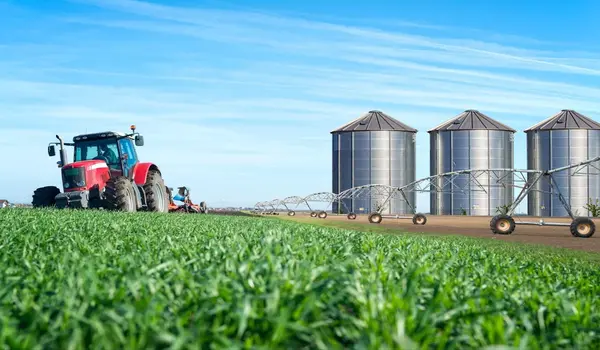At BulkAgro Chem, we recognize that the quality of agricultural inputs is crucial for successful farming operations. Our company provides premium agricultural supplies designed to enhance soil health and crop productivity. However, the effectiveness of these products can be significantly influenced by how they are stored. Proper storage conditions are essential to maintain the integrity, efficacy, and shelf life of agricultural inputs. By understanding the impact of storage on these factors, farmers and suppliers can ensure that their products deliver the best possible results and contribute to optimal agricultural outcomes. Extended Shelf Life: Proper storage conditions, including appropriate temperature, humidity, and light exposure, help preserve the shelf life of agricultural inputs. This reduces waste and ensures that products remain effective until their expiration date. Preservation of Efficacy: Correct storage practices maintain the chemical and biological activity of inputs, ensuring they perform as intended. This is crucial for products like fertilizers and pesticides, where efficacy directly impacts crop health and yield. Prevention of Degradation: Adhering to recommended storage conditions prevents the degradation of active ingredients. For instance, extreme temperatures or high humidity can cause fertilizers to clump or lose potency, while light exposure can degrade sensitive compounds. Reduced Risk of Contamination: Proper storage minimizes the risk of contamination by pests, mold, or bacteria. This helps maintain product purity and effectiveness, preventing potential harm to crops or soil. Cost Efficiency: By extending the shelf life and maintaining efficacy, proper storage reduces the need for frequent repurchases. This leads to cost savings and more efficient use of agricultural inputs. Enhanced Safety: Correct storage conditions ensure that inputs are handled and used safely, reducing the risk of accidental exposure or harmful effects on users and the environment. Regulatory Compliance: Following storage guidelines helps ensure compliance with safety and quality regulations, which is important for maintaining product integrity and avoiding legal issues. Improved Performance: Products stored under optimal conditions perform better, leading to better crop outcomes and overall agricultural success. Temperature Control: Storage temperature plays a critical role in maintaining the stability of agricultural inputs. Many products have specific temperature ranges within which they should be stored to prevent chemical reactions or biological degradation. Extreme temperatures, whether too high or too low, can compromise the efficacy of inputs like fertilizers, pesticides, and biological agents. Humidity Management: Excess moisture can lead to the clumping or breakdown of solid inputs and promote the growth of mold or bacteria. For liquid inputs, high humidity can cause condensation and contamination. Proper ventilation and dehumidification are essential to maintain product quality. Light Exposure: Light, particularly UV light, can degrade sensitive ingredients in agricultural inputs. Storing products in dark or opaque containers and keeping them away from direct sunlight helps preserve their efficacy. Container Integrity: The type of container used for storage affects the product’s stability. Proper sealing and container material prevent contamination, moisture ingress, and chemical reactions. Damaged or improperly sealed containers can lead to product loss and reduced effectiveness. Inventory Management: Regular monitoring of storage conditions and proper inventory rotation (first-in, first-out) ensures that older products are used before newer ones. This practice helps avoid the use of expired or degraded inputs, maintaining product effectiveness and safety. The storage conditions of agricultural inputs are vital to maintaining their shelf life and efficacy. Proper temperature control, humidity management, light protection, and container integrity all play significant roles in preserving the quality of these products. At BulkAgro Chem, we emphasize the importance of adhering to recommended storage practices to ensure that our products remain effective and safe throughout their lifespan. By implementing best practices for storage, farmers and suppliers can maximize the benefits of agricultural inputs, leading to improved crop health, higher yields, and more efficient use of resources. Ensuring optimal storage conditions not only protects the integrity of products but also contributes to successful and sustainable farming operations. Introduction
Benefits of Proper Storage Conditions
Main Points on the Impact of Storage Conditions
Conclusion
Bulkagrochem
Submit your contact number & get exciting offer
Bulkagrochem.com
Bulk Purchase & Get Bulk Discount
Share your number to receive customized bulk pricing, availability updates, and exclusive offers directly via WhatsApp.

Recommended Products



